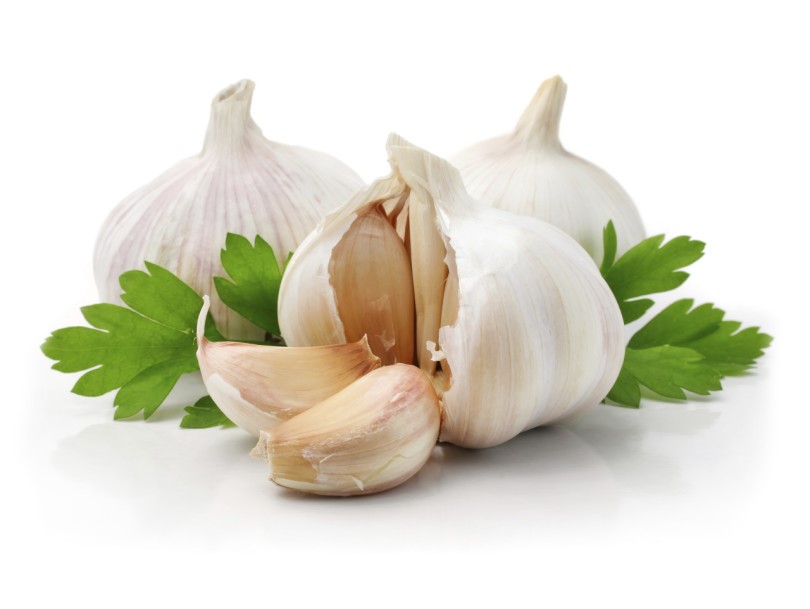Allium sativum (Garlic)

Garlic and its preparations have been widely recognized as agents for prevention and treatment of cardiovascular diseases. Garlic consumption has significant effects on lowering blood pressure, prevention of atherosclerosis, reduction of serum cholesterol and triglyceride, inhibition of platelet aggregation, and increasing fibrinolytic activity.
Garlic contains at least 33 sulfur compounds (Sulfur compounds: alliin, allicin, ajoene, allylpropyl disulfide, diallyltrisulfide, sallylcysteine, Vinyldithiines, S- allyl-mercaptocystein, and others), several enzymes (allinase, peroxidases, myrosinase, and others), 17 amino acids (arginine and others), and trace minerals such as selenium, germanium, tellurium and many more.
Extracts of garlic was found to decrease serum cholesterol levels in humans, inhibit cholesterol biosynthesis, suppress LDL oxidation, lower plasma fibrinogen and increase fibrinolytic activity, and thus to possess anti-atherosclerotic properties. Human studies have proven garlic’s ability to prevent and possibly reverse atherosclerosis. Garlic reduces the risk of hyperlipidemia. Several studies showed that garlic can protect the liver cells from toxin-induced damages.




